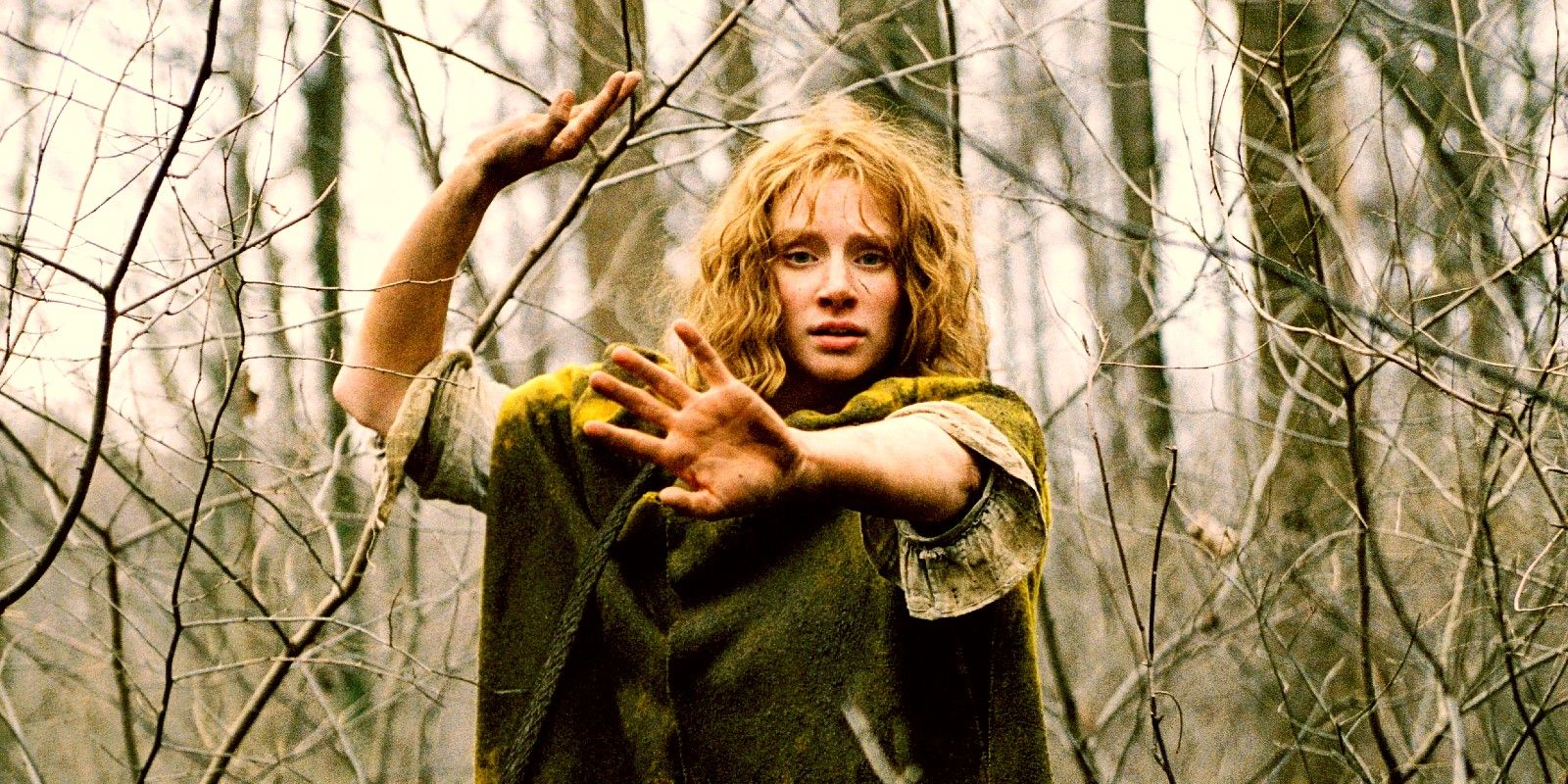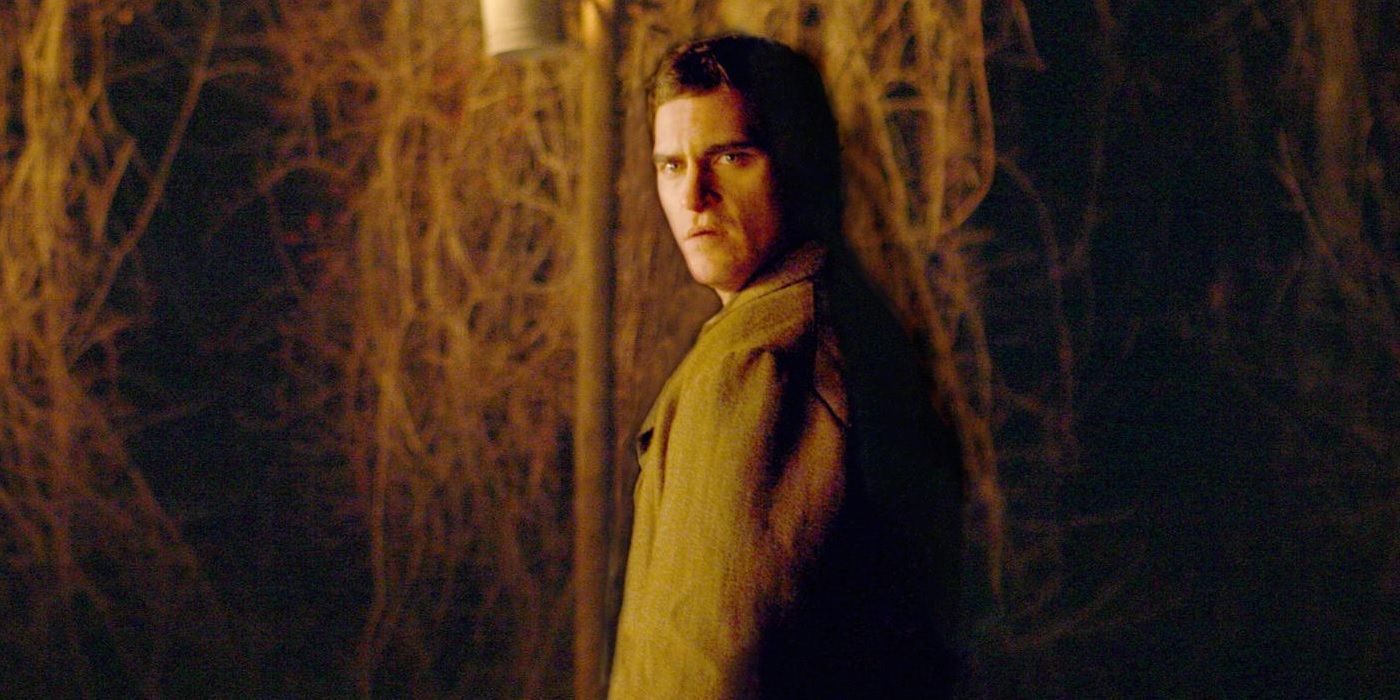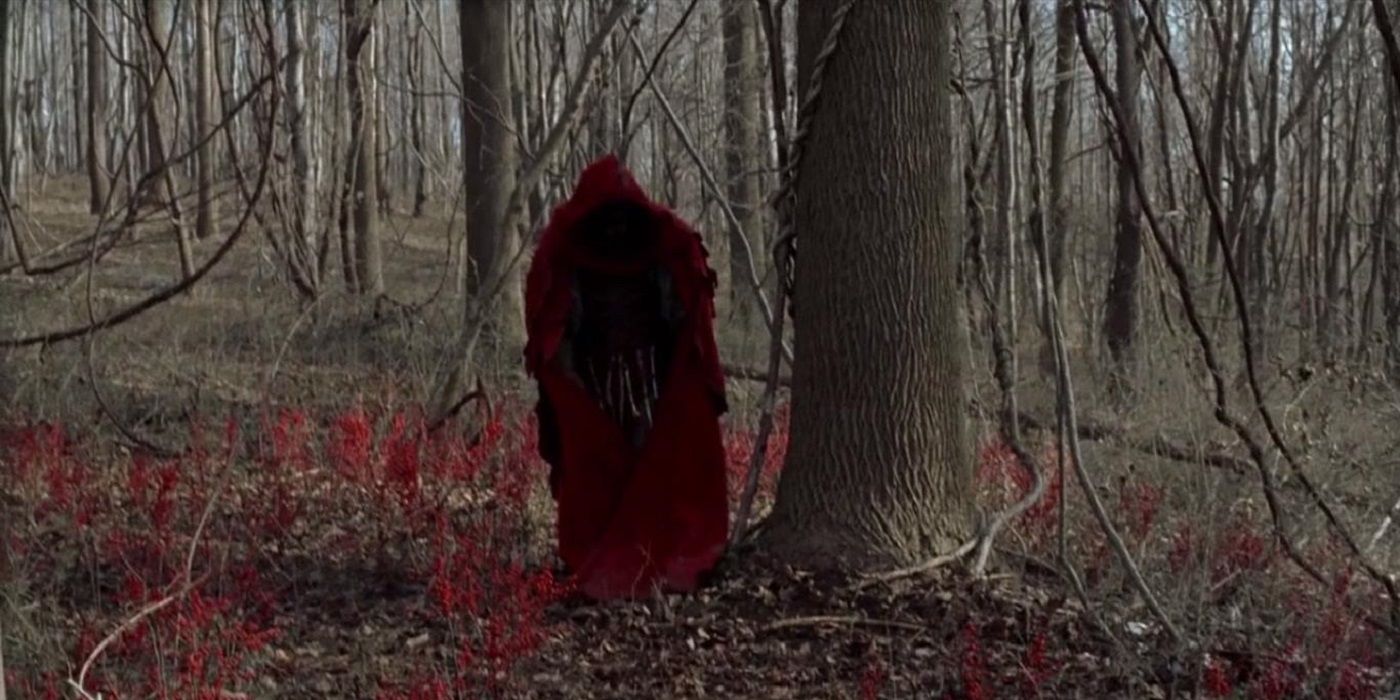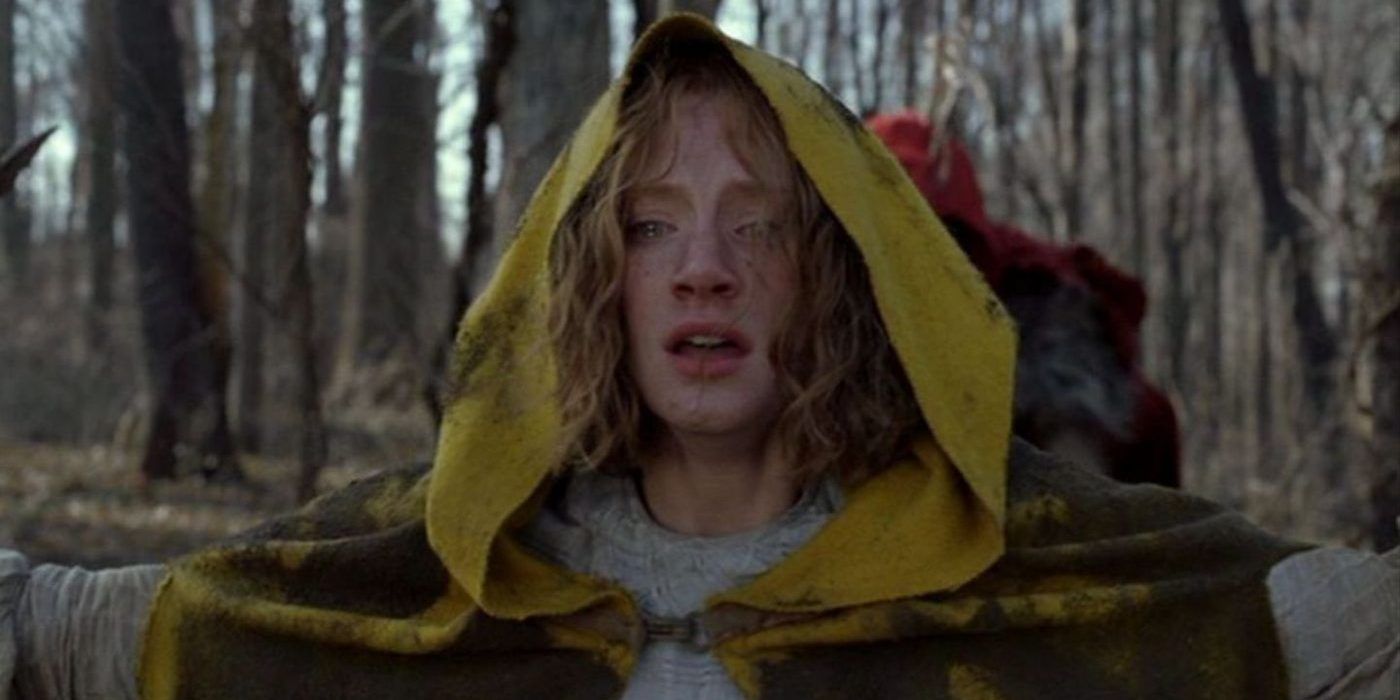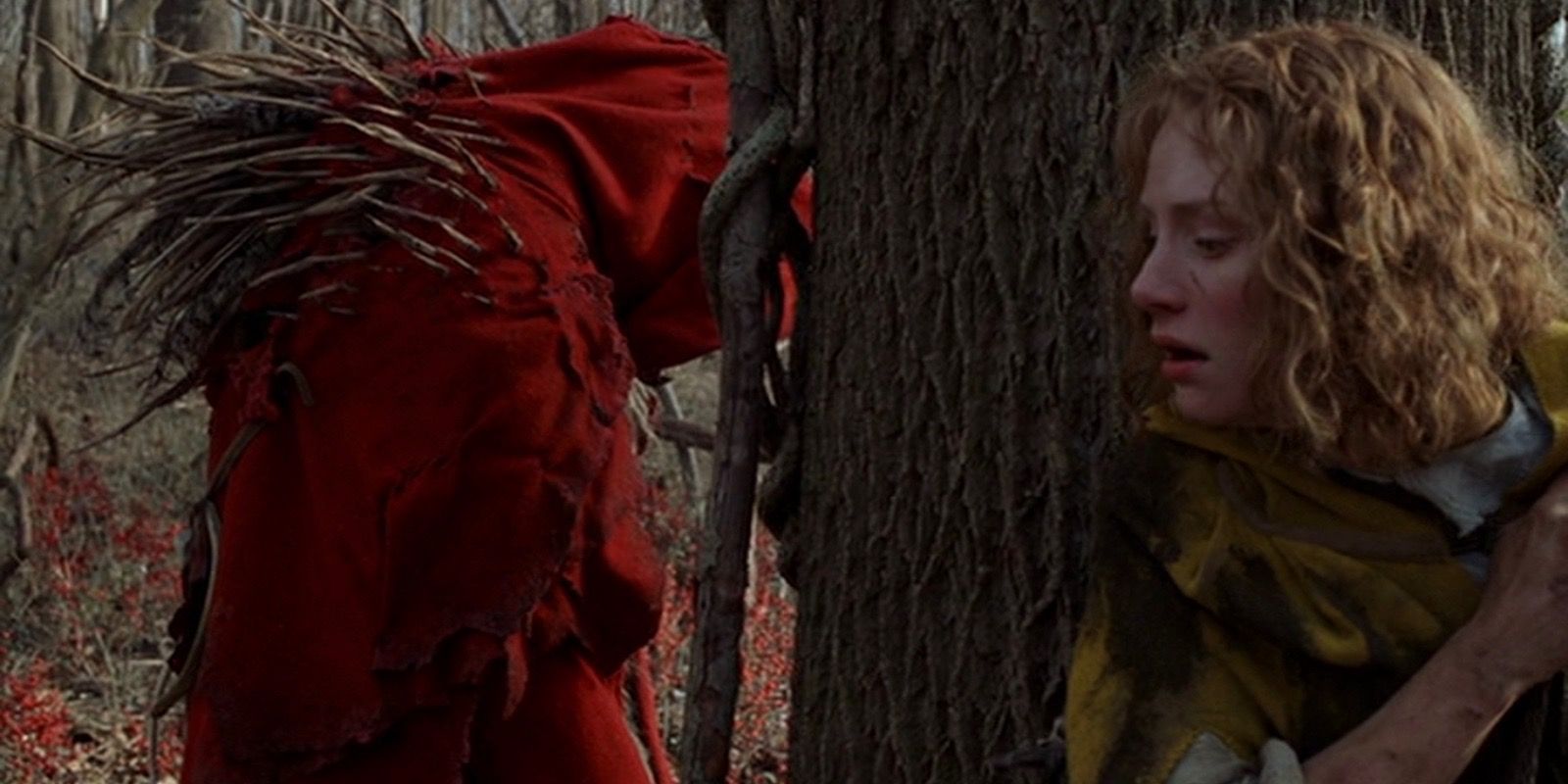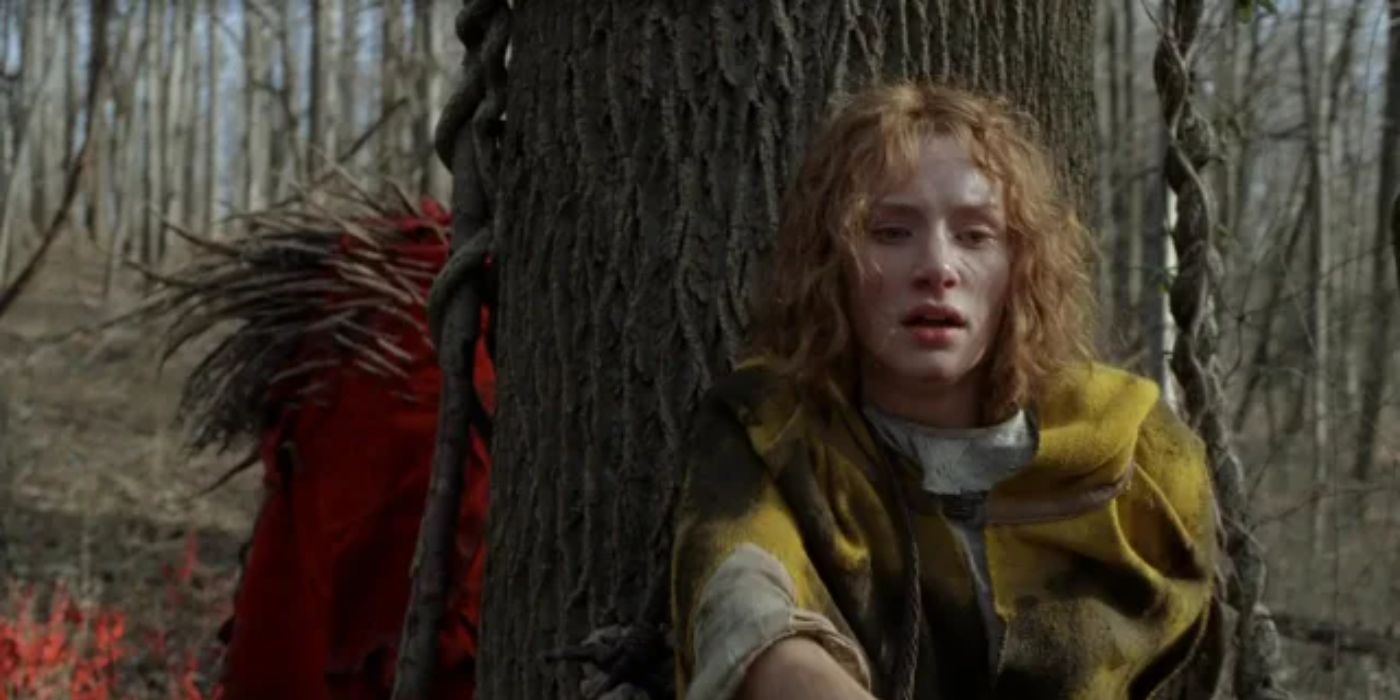Summary
-
The Village
‘s twist ending reveals that the community actually exists in the present day, challenging the audience’s perception of the movie as a 19th-century monster story. - The reveal of the entire movie taking place in the present proved too implausible for many viewers, as it raises more questions than it answers and feels arbitrarily tacked on.
-
The Village
explores themes of gaslighting, parental manipulation, and escape, with Ivy’s journey of self-discovery and confrontation of the elders’ lies at the film’s core. The ending leaves Ivy with a choice that recontextualizes much of the movie and highlights the complexities of her character.
The Village ending has one of M. Night Shyamalan’s most divisive twists, but the film and its conclusion have some interesting deeper themes. With a star-studded ensemble cast consisting of Bryce Dallas Howard, Joaquin Phoenix, William Hurt, Sigourney Weaver, Adrien Brody, Judy Greer, and Jesse Eisenberg, The Village is one of Shyamalan’s most ambitious efforts. While It earned mixed reviews and box office returns well behind Shyamalan’s hits like The Sixth Sense and Signs (via Box Office Mojo), The Village ending and it’s twist are still generating conversation decades after its 2004 release.
The Village follows the community of a small, isolated Pennsylvania village who live in fear of creatures in the surrounding woods — referred to as “Those We Don’t Speak Of.”The Village builds suspense as the village’s residents attempt to go about their normal 19th-century lives despite the fact that all is not as it seems. In the end, the truth is revealed that the community actually exists in modern times and the “monsters” were actually villagers in costume prowling the woods to discourage citizens from venturing into the wider world. Though The Village‘s ending was criticized, it also reveals deeper themes of the M. Night Shyamalan movie.
Related
M. Night Shyamalan’s Films Ranked From Absolute Worst To Best (Including Old)
Our ranking of M. Night Shyamalan’s best and worst films includes everything from his first debut drama to his most recent thriller, Old.
The Village Ending Reveals The Movie Is Set In The Present
Ivy Finds That It’s 2004 In The World Outside Her 19th Century Village
The ending of The Village had a shocking twist that completely changed the movie. Rather than being a film about a 19th-century village plagued by monsters, it’s actually about a cult-like community that has self-isolated from the modern world — although those born in the village have no idea the year is actually 2004 and have never set foot beyond the woods. Part of The Village‘s larger story revolves around the romance between two of the community members, Ivy (Bryce Dallas Howard) and Lucius (Joaquin Phoenix). It’s when their arc comes to a head that the twist at the end of The Village is revealed.
After professing their love for each other, Ivy and Lucius plan to get married. However, another community member named Noah (Adrien Brody) who has a developmental disability, stabs Lucius out of jealousy over Ivy. Desperate to save Lucius, Ivy plans to leave the community to find medicine. Before helping her on her quest, Ivy’s father Edward (William Hurt), an Elder in the community, reveals that the monsters are not real and that the Elders have been keeping the legend alive to keep the younger members safely in the village.
Ivy ventures into the forbidden woods surrounding the community and eventually emerges on the other side where she meets a park ranger, revealing the movie is set in the modern day. As Ivy gets help from the park rangers, including a cameo from M. Night Shyamalan, the movie reveals the backstory of Edward and the other Elders who met in grief counseling after losing loved ones to violence and founded the village decades ago to isolate themselves from the violent society of modern times.
Ivy returns to help Lucius, and because she is blind she did not learn the truth of the outside world, and Edward assures the other Elders they will continue with the lie.
M. Night Shyamalan put the cast through 19th century “boot camp” to prepare.
False Clues And Convenient Plot Details Ruined The Village Ending
Why The Village Ending Didn’t Work As Well As It Could Have Explained
The Village‘s twist is viewed as one of M. Night Shyamalan’s worst, with some of the details surrounding the truth undermining the whole concept. The reveal of the creatures being faked by the village Elders is effective and enhances the narrative due to adding themes of using fear to control people, taking it beyond a simple historical monster movie.
However, the reveal of the entire movie taking place in the present proved too implausible for many viewers. A fresh gravestone in The Village‘s opening scene is engraved with the year 1897, one detail among many that meant M. Night Shyamalan’s twist ending raises more questions than it answers.
The reveal of the entire movie taking place in the present proved too implausible for many viewers.
Firstly, the fact that the village Elders have given a false date to the community is an odd choice for a community designed to be entirely isolated. The younger community members don’t know of the outside world, so they don’t need to be tricked into thinking they are living in the past. They have no reason to believe technology in the 21st century was so far ahead of the 1800s — knowing that the year was 2004 wouldn’t risk blowing the Elder’s cover. Therefore, the fake date is there to trick the audience, not the characters.
What’s more, the vague explanation of the Walker family being billionaires who paid for the nature preserve to be a no-fly zone is overly convenient and decidedly implausible. The situation would no doubt lead to media coverage of the community and outsiders finding their way in. The twist also isn’t foreshadowed by any part of The Village‘s story. Instead, it feels unnecessarily tacked on simply to fill in the numerous plot holes.
The Village’s Cult Mentality & Religious Criticisms Explained
The Elder’s And Their Message Are A Metaphor For Modern Religious Extremism
The Village‘s story does explore some intriguing themes, even with the glaring flaws of the twist ending. Despite the good intentions of the community elders to keep everyone safe, the way they manipulate the residents of the village is incredibly sinister. So much free will is taken from the villagers as they believe what they’re told to believe, and are threatened with exile and living in isolation should they question the status quo — a twisted example of the elder’s fear-mongering. This makes the village’s society seem like a cult, with bizarre and arbitrary rules and regular “attacks” from the creatures to keep the villagers in line.
The superstitions followed by the villagers to appease the creatures seemingly act as a criticism of organized religion. The members of the community follow the village’s ways because it’s what they know, with the unproven fears they have been conditioned to have, keeping their behavior in check. There are clear parallels between The Village‘s story and both cults and contemporary religion, meaning that the film offers some insightful social commentary.
The movie’s original title was The Woods.
The Village’s Creatures Represent The Dark Side Of Parental Responsibility
M. Night Shyamalan Explored Difficult Themes By Removing The Supernatural Elements Of The Village
Though The Village reveals its movie monsters not to be supernatural beings, the creatures do have a deeper meaning. As well as keeping the villagers scared and isolated, the creatures represent the darkness of The Village‘s parents. The village Elders see the creatures as the means to an end: they dress up and strike fear into the hearts of their families in order to maintain the status quo and protect their families.
The Elders see the monsters as an extension of their responsibilities to their families and their children. They represent the more unpleasant tasks required to protect their loved ones from what they perceive as an evil society. To the Elders, the monsters represent modern society itself — a looming threat that could claim the lives of any one of their loved ones without warning.
The Village Is About Gaslighting, Parental Manipulation, & Escape
The Ending Of The Village Showed It’s Most Complex Themes
Though M. Night Shyamalan’s twists are divisive, his movies are usually stuffed with allegory and narrative metaphors, and The Village is no exception. One of the film’s biggest themes is the sometimes toxic relationship between children and their parents, and how this can affect a person. The village Elders — the parents of its protagonists — are lying and manipulating the community for what they perceive to be the greater good, suggesting that they believe ignorance is best for their families.
However, by exploring the idea of Ivy discovering the truth, The Village is more of a coming-of-age tale of escape and growth. Though she has been gaslit her entire life to fear the woods and the creatures, Ivy bravely navigates her way blindly (both literally and figuratively) due to the lies she has always believed.
Discovering the truth of her situation is a Shyamalan twist that’s both silly and good, because while it undermines the film’s tension, it also speaks to The Village‘s deeper themes. Ivy must confront the ways in which she has been manipulated in order to quite literally secure her own happy future, and although The Village doesn’t reveal whether she helps maintain the charade, her journey of understanding is at the film’s core.
The Village Ending Is Ivy Confronting The Elders’ Lies
Ivy’s Choice Recontextualizes Much Of The Movie
As The Village ends on an inconclusive note that could add to the frustration over the movie. If Ivy chooses to stay in the village and maintain her parents’ lies, it transforms her journey of self-discovery by making her much more selfish. On the other hand, if she chooses to expose the truth, it may be her biggest mistake in The Village, because Ivy and all her loved ones would then be forced to reintegrate into modern society.
Taken at face value, The Village‘s ending is a happy one. It is implied that Lucius is saved by the medicine brought by Ivy and that the two will marry as planned. On a deeper level, The Village‘s ending also sees Ivy learn the truth about the village and confront it in order to move on with her life, showing that she’s overcome the tribulations of her youth and is free from the constraints imposed upon her by the village Elders.
Although The Village‘s ending is considered one of Shyamalan’s worst, it still represents a societal issue regarding the way parents treat their children, making the film an interesting allegory for the trauma of youth.
What The Ending Of The Village Actually Means
Ivy Briefly Experiencing The Modern World Has Deeper Metaphorical Significance
Many viewers and critics alike found the twist ending of The Village to be among Shyamalan’s most implausible, with the key criticism being that it felt like a twist for the sake of having a twist. The reveal that the movie was actually set in 2004 was considered a stretch by some. However, that doesn’t mean the ending was without meaning, and it does convey a deeper message that ties together the core themes of the movie.
The residents of the titular village found modern society so lacking that they chose to retreat into the woods and live isolated from the rest of the world. Their children then grew up completely unaware that the year was actually 2004. The only one who almost finds out the truth is, of course, Ivy. However, because she’s blind, she doesn’t see the car that picks her up or any of the modern world.
The fact that none of the characters born in the village experience modernity is where much of the meaning of the ending of The Village lies. Ivy’s blindness can be seen as almost metaphorical, and what she does experience through her other senses during the movie’s climax she doesn’t fully understand. This is an (albeit poorly executed) metaphor for the indoctrination of children into ideology by their parents. Ivy is — both literally and figuratively — blind to the truth of her circumstances, and her perspective of what she has experienced beyond the forest is shaped by the world the elders in her community constructed for her.
However, The Village definitely isn’t one of the best endings to an M. Night Shyamalan movie. Had the director perhaps pulled off the ending with the skill of his other movies such as, for example, The Sixth Sense, the meaning may have been a bit clearer and easier to grasp. As it stands, the ture message behind the ending of The Village is lost in just how jarring the twist is when it arrives.
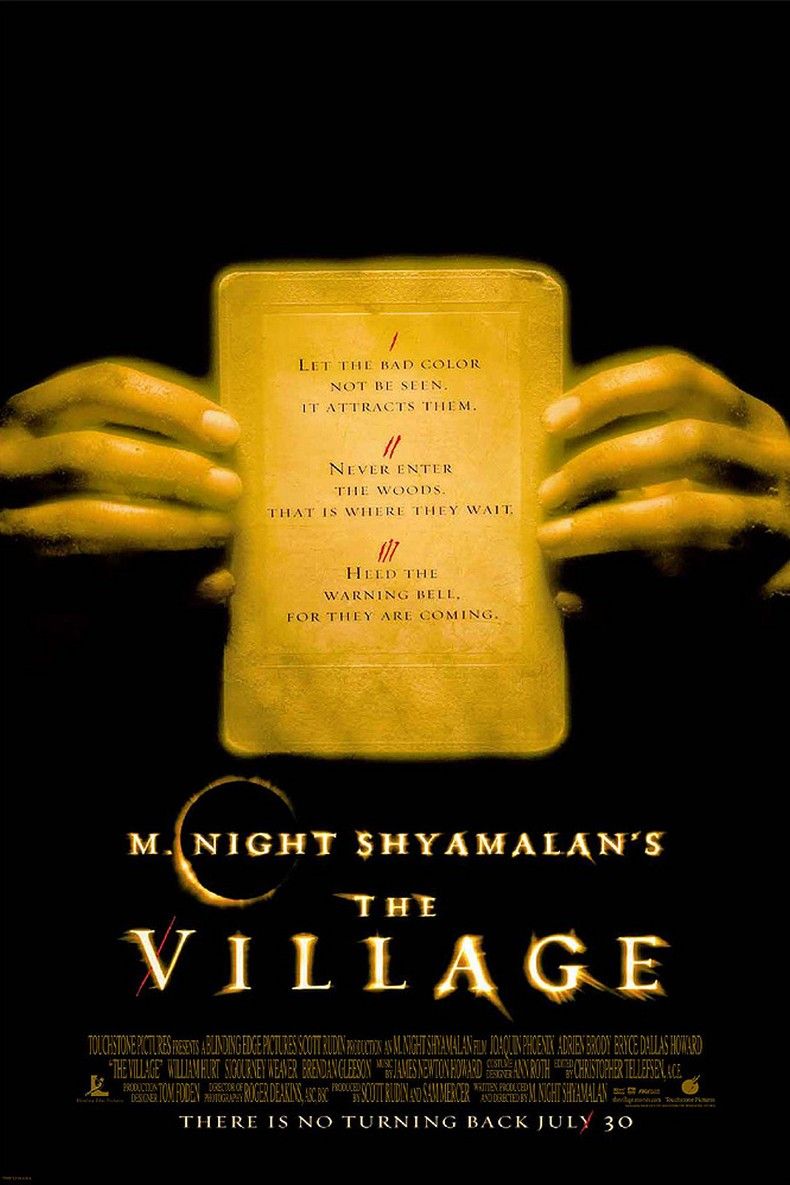
The Village
Directed by M. Knight Shyamalan, The Village is set in a small Pennsylvania village in the 1800s. Residents of the village live in fear of sinister creatures living in the woods around them, leading them to be very isolationist, not allowing people to leave. The film follows a young couple who attempt to leave the village in order to procure medical supplies from the surrounding towns. Bryce Dallas Howard and Joaquin Phoenix star as the couple, Ivy and Lucius, with a further cast that includes Adrien Brody, William Hurt, Sigourney Weaver, and Brendan Gleeson.
- Release Date
- July 30, 2004
- Runtime
- 108 minutes



